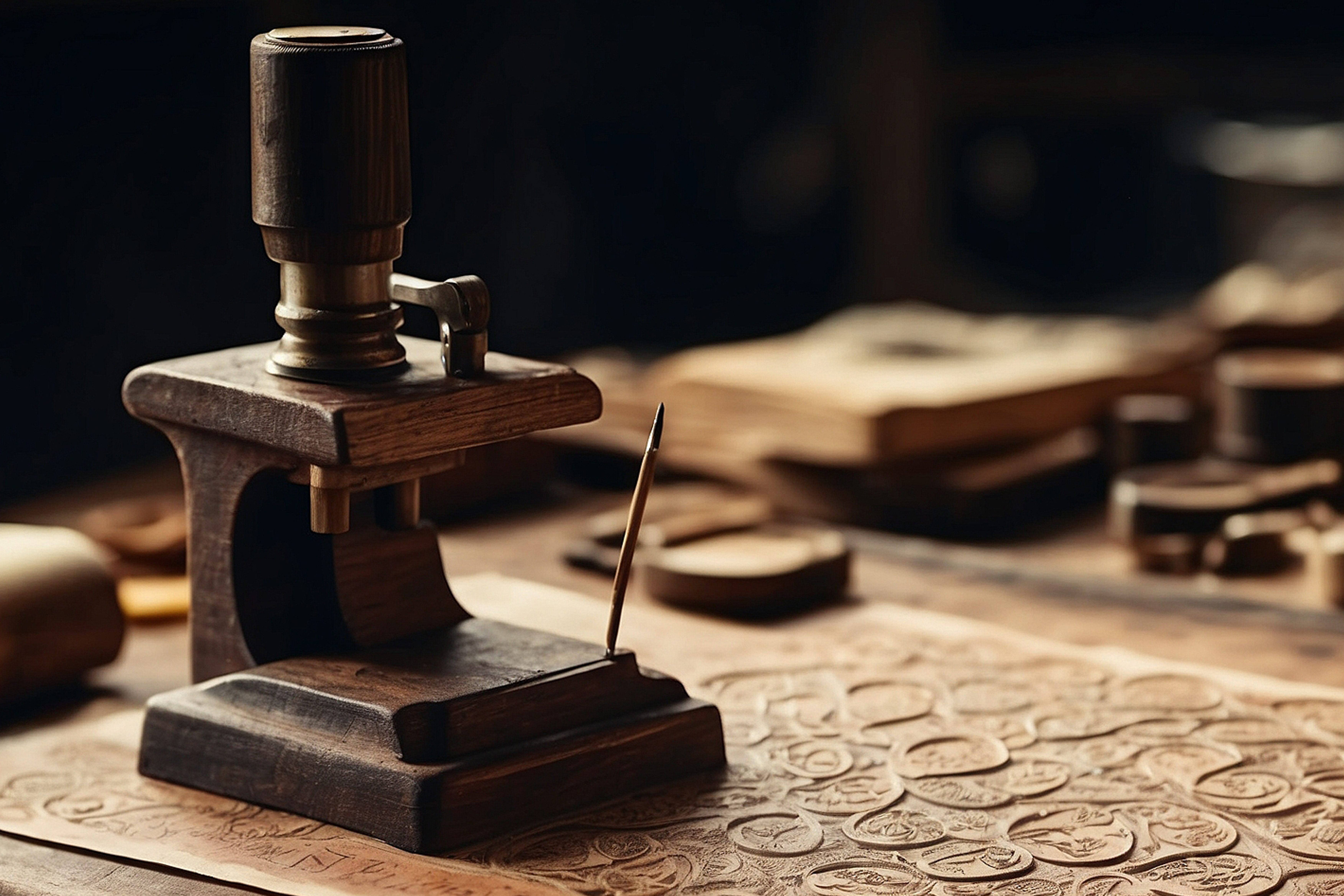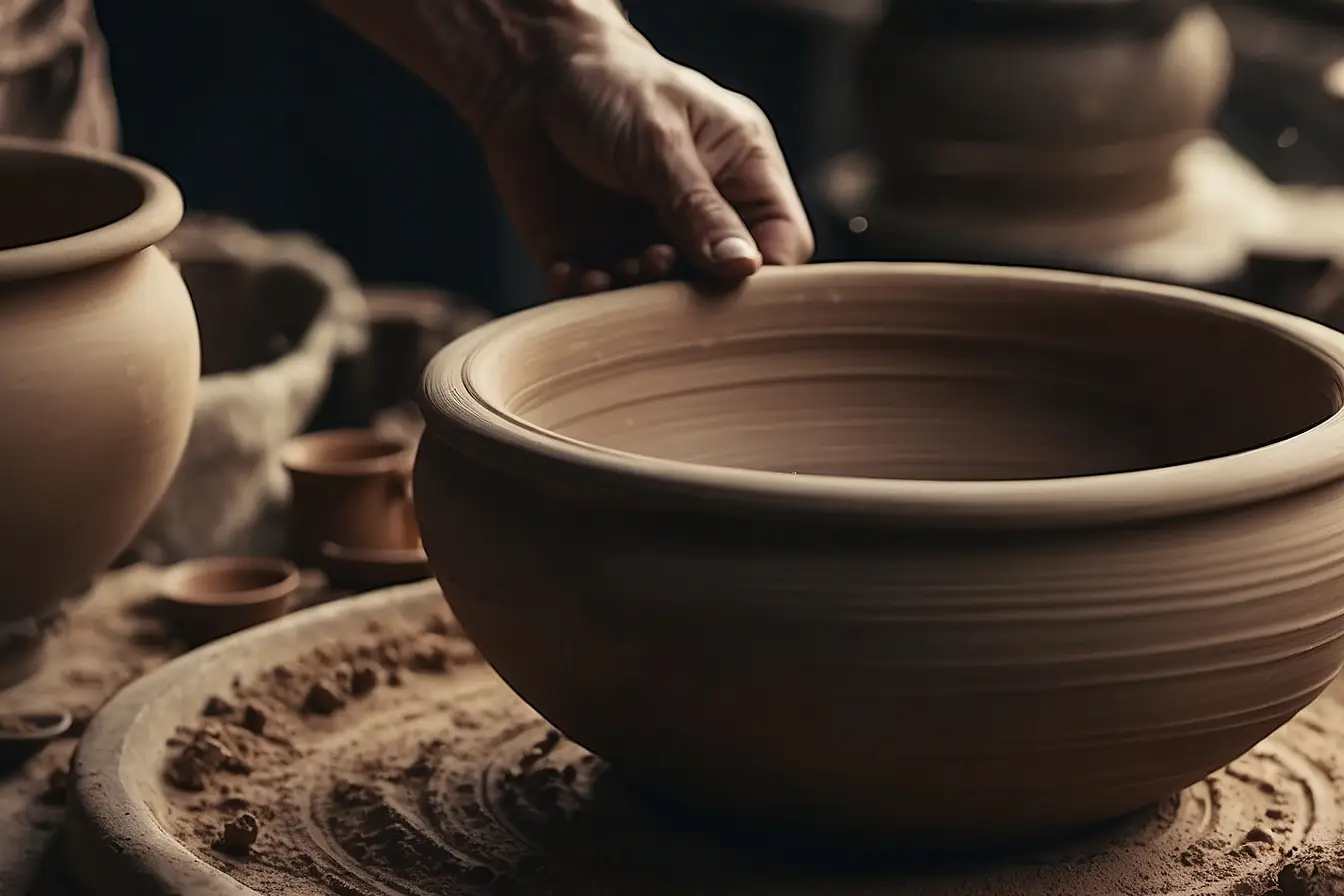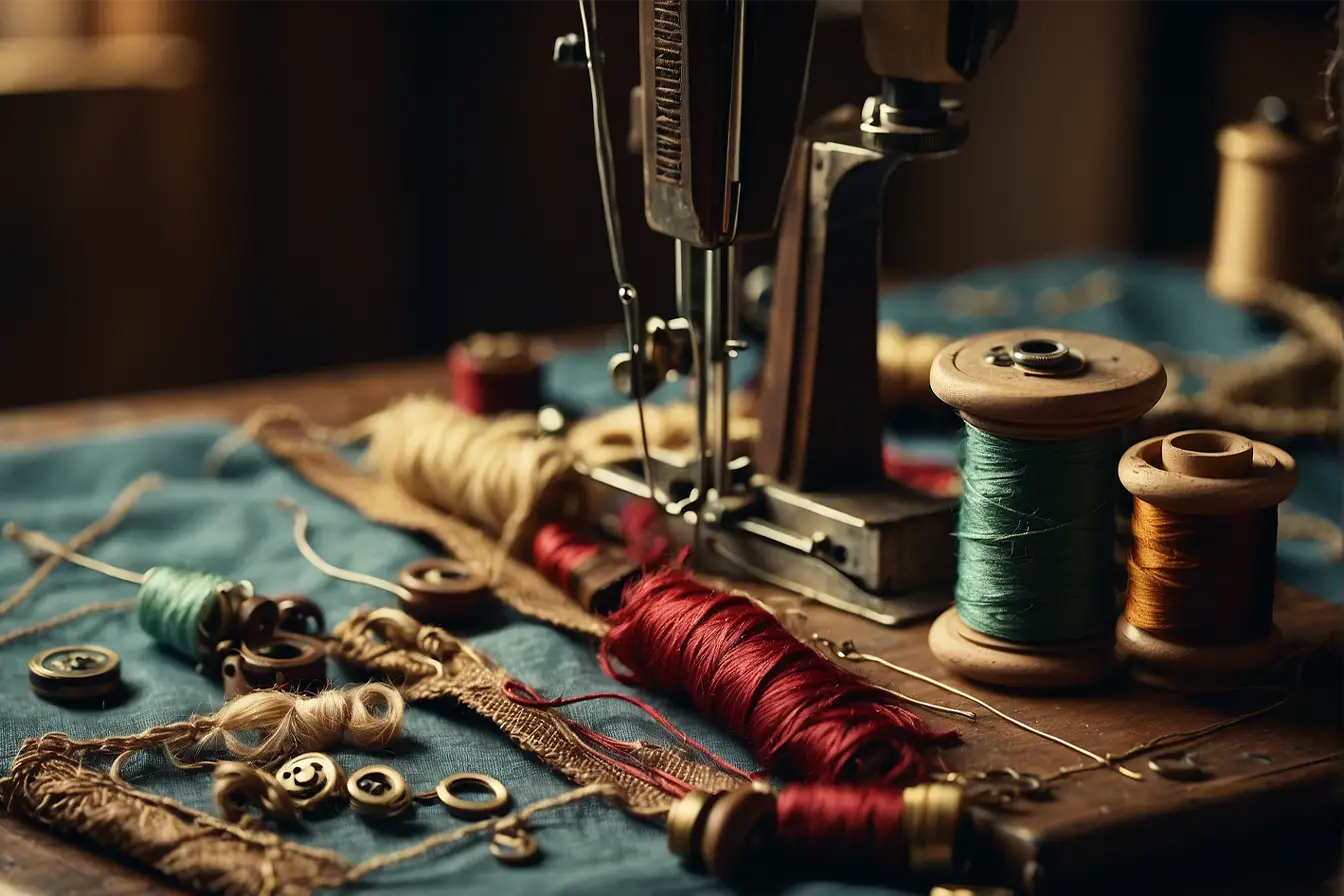Pottery Making
Pottery is one of the oldest crafts in human history. In Madinah, it became popular due to the availability of raw materials - water and soft soil - in the surrounding valleys.


A stamp maker was traditionally known as 'mahraji', and specialized in making one of the oldest tools to attest documents. Attestation was a widespread practice among rulers and state officials.
Traditionally known as 'mahraji' in the local dialect, a stamp maker specialized in making stamps for men and women, using diverse materials such as clay, metals and preciousstones. This craft was known throughout history and flourished in the Arabian Peninsula.
There is a historical dimension to this craft. It was invented thousands of years ago. Different materials, such as metals and precious stones, were used to make stamps. Various shapes and inscriptions were engraved on those materials. This craft was closely connected to rampant illiteracy in the past. Stamps were an important means of attestation.
A community of craftsmen was famous for making stamps in Madinah. They used various metal materials. A stamp maker would first clean the plate with a file, fasten it with strong wooden clasps, and then engraves the text and/or image on the plate, using steel pens.
Stamps were a very important attestation tool. They were very important to rulers, judges, etc.
The craft of stamp making has diminished today, but some stamp makers have managed to carry on their profession to this day due to the demand for their products by specific social groups.
The authorities responsible for handicrafts and cultural heritage have taken care of this craft. It is represented along with other cultural heritage components exhibited at Al-Janadiriyah Festival. People also meet craftsmen in the various popular festivals and benefit from their experiences.

Pottery is one of the oldest crafts in human history. In Madinah, it became popular due to the availability of raw materials - water and soft soil - in the surrounding valleys.

It is a craft that has been practiced by all nations in all ages. It differs from one nation to another according to local culture and customs. In Madinah, it has been known since dawn, and is characterized by the diversity of styles.